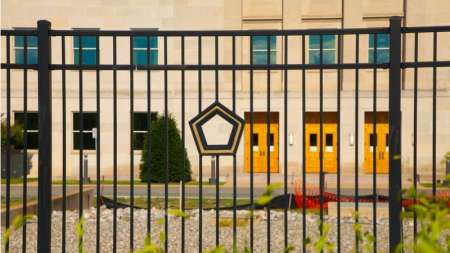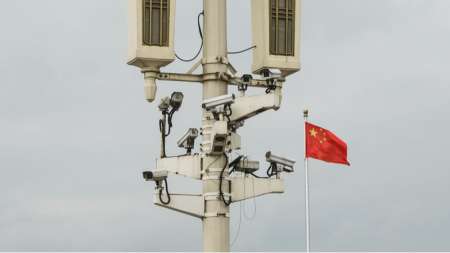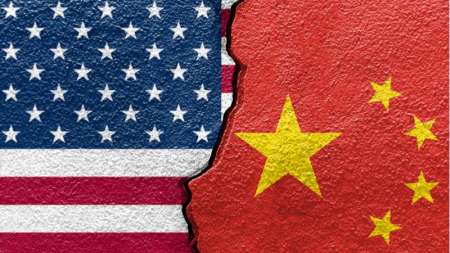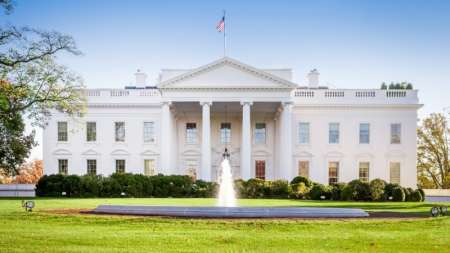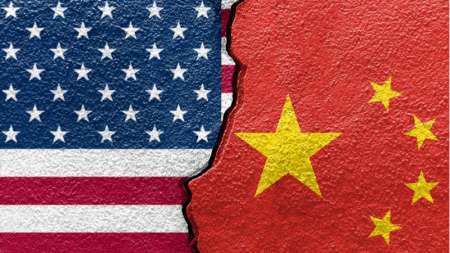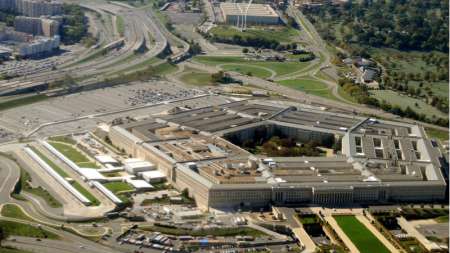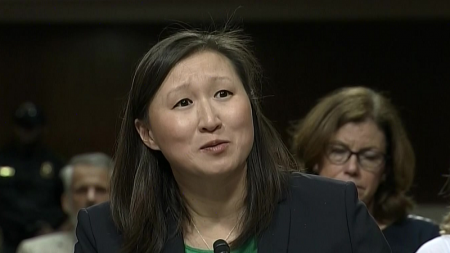Secretary of Defense Mike Esper said today that Department of Defense (DoD) partnerships with the private sector are vital to the Pentagon’s aim to remain the global leader in emerging defense technologies. […]
U.S. Chief Technology Officer Michael Kratsios delivered a strong plea today for broad policy cooperation between the U.S., European countries, and other allies in the development and deployment of artificial intelligence (AI) and 5G wireless communications technologies. […]
The United States must maintain its advantage in artificial intelligence and quantum computing over countries like China by placing the building blocks for a future workforce, according to Rep. Will Hurd, R-Texas. […]
NATO (North Atlantic Treaty Organization) needs to study and address its own and member countries’ space-based asset cybersecurity challenges, a July 1 Chatham House report said. […]
A new report from Cybereason says that persistent cyberattacks on at least 12 global telecom service providers since 2012 were likely perpetrated by the China-based threat actor known as APT10. […]
A U.S. senator is raising concerns that China could be exporting surveillance capabilities to authoritarian governments, and is calling on the State Department to put more emphasis on preventing the spread of those tools. […]
A group of five senators released bipartisan legislation that would create a national policy to securely deploy commercial 5G networks and establish an up to $700 million grant program to aid American communications providers in removing Chinese products from their networks. […]
Sen. Chuck Schumer, D-N.Y., will call for a Federal investigation that examines the potential national security threat of plans to install New York subway cars designed by a Chinese state-owned company. […]
President Donald Trump declared a “national emergency” when he signed an executive order (EO) today that would grant Federal authority to prohibit the adoption of foreign adversaries’ telecom suppliers. […]
Federal government officials warned about the risks and challenges of rolling out 5G wireless networks – particularly in terms of the threat China poses in its global advancement of 5G – and emphasized that use of public-private partnerships in developing America’s vision for 5G networks will be critical for ensuring network security and staying internationally competitive. […]
David Norquist, deputy Defense Secretary and chief financial officer at the Pentagon, told senators today that threats posed by China and Russia are the Defense Department’s (DoD) central problem – particularly in the race for technological defense capabilities – and largely justify the White House’s proposed $750 billion defense budget for FY2020. […]
China has significantly closed the innovation gap with the United States since 2007, and even more so since 2017, although the U.S. still leads China in research and development (R&D) spending, according to a recent Information Technology and Innovation Foundation (ITIF) report. […]
House Budget Committee members threw a series of sharp questions and critiques at Deputy Defense Secretary David Norquist today about the Defense Department’s (DoD’s) proposed technology spending plans after he said DoD is prioritizing IT modernization, better cybersecurity, and tech innovation. […]
Rep. William Hurd, R-Texas, stressed at IBM’s Think Gov event today that America needs to lead the world in developing 5G wireless networks and artificial intelligence (AI) capabilities, especially with China on the rise as a voracious international competitor, and said successful development and application of the two technologies are inextricably linked. […]
An internal U.S. Navy report found that the service branch and its industry partners face a severe barrage of cyberattacks from China, according to an article from the Wall Street Journal today. […]
The Atlantic Council recommends accelerating a whole-of-government approach to developing a long-term national spectrum strategy which will include creating an inter-spectrum for 5G that will allow for Federal, state, and local policy synchronization of policies and procedures to rapidly and cost-effectively implement 5G. […]
With nation-state cyberattacks increasingly targeting businesses, the Federal government must take action to collaborate and communicate with the private sector in a whole-of-government approach, said current and former officials from the Department of Justice on Tuesday. […]
In a December report, the Department of Defense (DoD) assessed the global expansion by China and what it could mean for the United States’ future defense capabilities. […]
The National Counterintelligence and Security Center (NCSC) has announced a new campaign to spread awareness among private sector companies to protect against nation-state cyberattacks. […]
Sens. Mark Warner, D.-Va., and Marco Rubio, R-Fla., introduced legislation on Friday to create an Office of Critical Technologies & Security at the White House to coordinate action across Federal agencies and develop a “whole of government” strategy to combat theft of U.S. technologies by state actors including China, and to reduce risks to “critical supply chains.” […]
The Department of Justice (DoJ) today announced hacking and identity theft charges against two members of the Chinese state-sponsored hacking group APT-10, alleging that the APT-10 members hacked into American organizations and stole personally identifiable information on more than 100,000 Navy personnel. […]
A Google spokesperson declined today to confirm or deny a report from The Intercept that an internal struggle between Google’s privacy team and executives managing its Dragonfly China search engine project has led to an effective shutdown of the effort. […]
More than 200 Google engineering, research, and project management employees have signed a petition calling on the company to cancel its Dragonfly project, which the employees said aims to create a “censored search engine for the Chinese market that enables state surveillance.” […]
In advance of a scheduled meeting between President Trump and Chinese President Xi Jinping at the G-20 summit this week, a new update from the Office of the U.S. Trade Representative (USTR) released on November 20 details China’s continued policies of stealing information from U.S. companies through cyberattacks. […]
The ability of adversaries to attack in cyberspace with low consequence creates the need to impose friction and leads to the tenants of defending forward and continuous engagement with adversaries in cyberspace espoused in the National Cyber Strategy and the Department of Defense (DoD) Cyber Strategy, said Rob Joyce, senior adviser for cybersecurity strategy to the Director of the National Security Agency (NSA). […]
The United States, Russia, and China did not sign the Paris Call for Trust and Security in Cyberspace, a global cyber pact, released Tuesday at Paris Peace Forum by French President Emmanuel Macron. […]
The Department of Defense released the latest chapter of its cyber strategy on Tuesday, which takes a more offensive stance than its 2015 predecessor and directs DoD to “defend forward, shape the day-to-day competition, and prepare for war” in cyberspace. […]
Welcome to MeriTalk News Briefs, where we bring you all the day’s action that didn’t quite make the headlines. No need to shout about ‘em, but we do feel that they merit talk. […]
The National Defense Authorization Act (NDAA) for FY 2019 took a big step toward passage with the release of the conference report late yesterday that unifies House and Senate NDAA legislation and places in sharp focus concerns about growing cyber and electronic warfare threats and ways that the United States should address them. […]
With cybersecurity threats on the rise, most recently seen in a Chinese hack of a Navy contractor, the Department of Defense is taking new steps to ensure security, in part by putting more of the onus on contractors. […]

